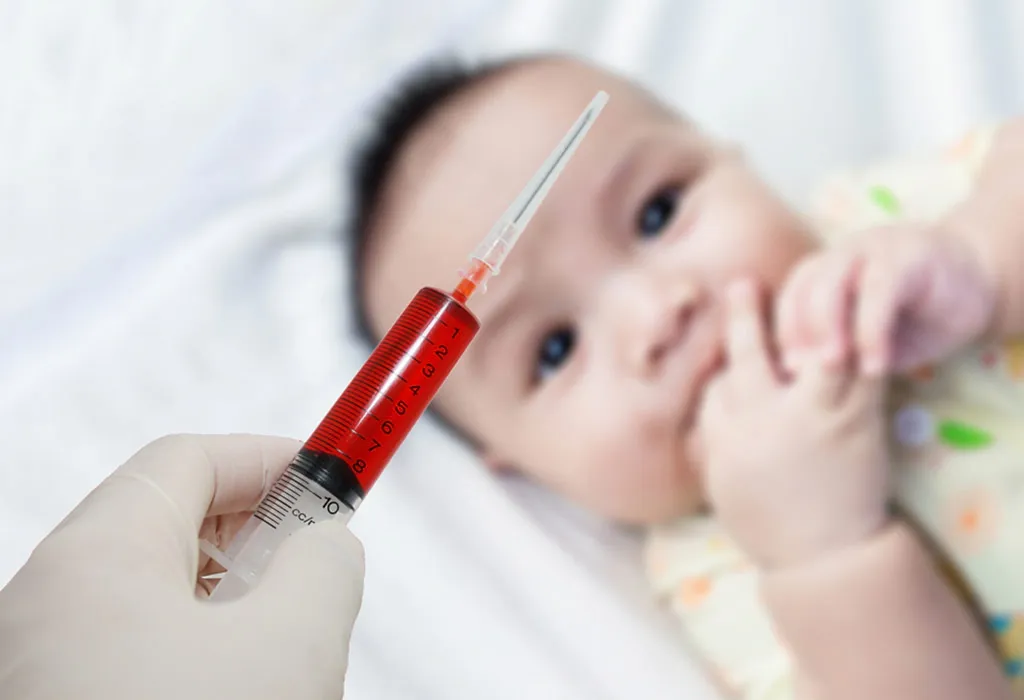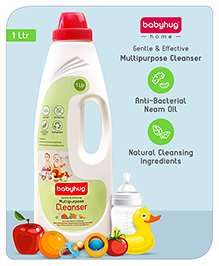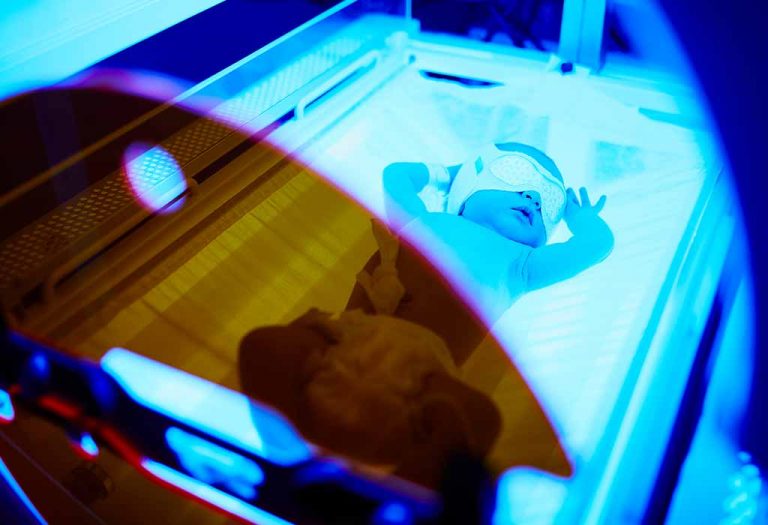Bacterial Infection in Babies – Causes, Symptoms and Treatment
- Common Bacterial Infections in Babies
- What Causes Baby Bacterial Infection
- Symptoms of Bacterial Infection in Infants
- Diagnosing Your Baby for Bacterial Infection
- Treatment for Infant Bacterial Infection
- Prevention of Bacterial Infection in Babies
- FAQs
Bacterial infection may commonly occur in babies due to their vulnerable immune systems. That is why mother’s milk is so important for babies as it provides the necessary antibodies to fight these infections. Prompt recognition and treatment are crucial, as bacterial infections in infants can escalate rapidly, potentially leading to serious complications. Infants suffering from bacterial infections may require intensive care and treatment. Fortunately, most babies respond well to timely treatment. After diagnosing the condition, the doctor may recommend a specific course of antibiotics tailored to the baby’s needs and the type of infection detected. Read on to learn more about bacterial infection in newborns.
Common Bacterial Infections in Babies
Some of the common bacterial infections that may occur in babies are listed below:
- Conjunctivitis – Conjunctivitis triggered by bacterial infection affects baby’s eyes, inflaming the eyelids. The infected eyes may produce a yellow discharge causing the eyes to stick together.
- Listeriosis – Listeriosis is a type of food poisoning which is caused by eating infected food that is contaminated by a bacterium. Listeriosis may be passed on from an infected mother to her newborn baby possibly leading to life-threatening complications.
- Streptococcal Infection – Streptococcal infections or strep infections strike babies when the bacteria gets transferred from their mother to them at the time of birth. Streptococcal infections in babies can result in complications like meningitis, pneumonia, sepsis (blood infection).
- Gastro-intestinal infections – Bacteria may invade a baby’s digestive tract causing diarrhoea. Babies with diarrhoea can have associated symptoms like vomiting, stomach ache.
- Urinary Tract Infections – Bacterial infections can occur in a baby’s urinary tract, leading to symptoms like irritability, fever, and discomfort during urination.
- Skin Infections – Bacterial skin infections, such as impetigo, can occur when bacteria enter through cuts or breaks in a baby’s skin, causing redness, sores, or blisters.
What Causes Baby Bacterial Infection
Some of the causes of baby bacterial infection are as follows (1):
1. Exposure During Pregnancy
During pregnancy, bacteria from the mother’s genital tract can potentially reach the unborn baby, especially if the mother has conditions like bacterial vaginosis or Group B Streptococcus. These bacteria can colonize the baby and lead to infections shortly after birth.
2. Transmission During Childbirth
Direct contact with the mother’s vaginal fluids or cervix during delivery can expose the newborn to bacteria such as Group B Streptococcus, Escherichia coli (E. coli), or others present in the birth canal. This transmission can occur even if the mother does not have symptoms of infection herself.
3. Postnatal Transmission
After birth, newborns are susceptible to infections from bacteria present in their immediate environment, including hospitals, caregivers, or visitors. This includes contact with contaminated hands, surfaces, or improperly sterilized medical equipment.
4. Mixed Infections
Newborns are particularly vulnerable to infections caused by a combination of bacteria and viruses. Viruses can weaken the baby’s immune system, making them more susceptible to secondary bacterial infections that can quickly escalate.
5. Weak Immune System
A newborn’s immune system is immature and still developing, leaving them less capable of fighting off infections compared to older children and adults. This vulnerability increases their risk of contracting bacterial infections, such as respiratory infections or gastrointestinal infections.
6. Contact Transmission
Newborns can easily acquire infections through direct contact with individuals who are carriers of bacteria, such as family members or healthcare providers. Contaminated surfaces or medical equipment can also serve as sources of infection if not properly cleaned and sterilized.
Symptoms of Bacterial Infection in Infants
The common symptoms of bacterial infection in infants can be:
- High fever
- Poor feeding
- Excessive sleepiness
- Irritability without any clear reason
- Difficulty in breathing
- Changes in behaviour like sleeping patterns
- Crying insistently
- The skin may become pale or appearance of rashes
Diagnosing Your Baby for Bacterial Infection
In the case of newborn babies, the condition can deteriorate rapidly. Hence, early treatment is essential. A doctor may conduct a few tests to diagnose your baby for bacterial infection. When the results of the tests come in, the doctor may start the treatment by prescribing a course of antibiotics in the meantime. The doctor may recommend the following tests to reach a diagnosis. (2):
- Complete Blood Count (CBC): A blood sample of the new-born baby may be taken to conduct a complete blood count. CBC is done to determine the specific number of the different blood cells with special attention to the count of white blood cells (WBC). A lower count of WBC is indicative of the presence of some infection in the body.

- Blood Culture: A blood culture helps to find out the existence of bacteria in the blood and to identify its type. Once the blood culture establishes the kind of bacterial infection, a doctor can decide upon a suitable treatment.
- A Urine Test: A urinalysis or a set of screening tests may be done to detect the nature of bacterial infection.
- Skin or Eye Swab: The doctor may collect some specimen from the infected area such as the eye and the surrounding tissue for analysis.
- Chest X-ray: A baby may require a chest X-ray if the doctor suspects pneumonia.
- Spinal Tap: A spinal tap or lumbar puncture involves extracting a small sample of CSF ( Cerebrospinal Fluid), a clear liquid that “cushions” the spinal cord, the brain and the central nervous system for investigation.
Treatment for Infant Bacterial Infection
In case of newborn baby bacterial infection, your doctor may begin the treatment by prescribing antibiotics (3). It is important to complete the course of antibiotics as prescribed by the doctor even if the baby starts to show signs of improvement. The antibiotics may be given to the baby through Intravenous Infusion IV which can deliver the correct measure of antibiotics straight into baby’s bloodstream.
In the incidence of bacterial infection in babies stomach, if the baby is unable to consume food IV fluids may be given to the baby to ensure supply of the essential nutrients and to prevent dehydration. In special cases like a bacterial infection in blood in babies, doctors may monitor baby’s breathing and heart rate to avert any possible complication.
Prevention of Bacterial Infection in Babies
Preventing bacterial infections in babies is crucial to ensuring their health and well-being, especially given their vulnerable immune systems. By implementing these effective preventive measures, caregivers can significantly reduce the risk of bacterial infections and their potential complications (4).
- Ensuring the mother receives adequate prenatal care helps prevent infections that can be transmitted to the baby during pregnancy or childbirth.
- Regular handwashing by caregivers and visitors before handling the baby helps minimize the spread of bacteria.
- Breast milk provides antibodies that help protect babies from infections, including bacterial ones.
- Following recommended vaccination schedules helps protect babies from certain bacterial infections, such as pertussis (whooping cough) and pneumococcal disease.
- Keeping the baby’s environment clean and sanitized reduces exposure to harmful bacteria. This includes regularly cleaning surfaces, toys, and baby equipment.
- Avoiding close contact with individuals who are sick or have infections reduces the risk of transmitting bacteria to the baby.
- Ensuring proper hygiene and cooking food thoroughly helps prevent bacterial infections such as Salmonella or E. coli.
FAQs
1. Can babies get bacterial infections from breastfeeding?
While breastfeeding provides protective antibodies, babies can still develop bacterial infections if bacteria from the mother’s skin or breast enter the baby’s mouth or if the breast milk becomes contaminated. Proper hygiene, including washing hands before breastfeeding and ensuring proper storage and handling of breast milk, can help minimize this risk.
2. Can babies develop antibiotic resistance from treating bacterial infections?
While antibiotics are necessary to treat bacterial infections, overuse or misuse can contribute to antibiotic resistance. It’s crucial to follow your healthcare provider’s instructions regarding antibiotic dosage and duration to minimize this risk.
3. Are there specific bacterial infections that newborns are more susceptible to?
Yes, newborns are particularly vulnerable to bacterial infections such as Group B Streptococcus (GBS), which can cause serious complications if transmitted from the mother during childbirth. Other infections like neonatal sepsis or pneumonia are also common in newborns.
4. How can I differentiate between a viral and bacterial infection in my baby?
It can be challenging to distinguish between viral and bacterial infections based solely on symptoms. Generally, bacterial infections may present with more localized symptoms (such as a specific area of redness or swelling) and can be associated with higher fevers or worsening symptoms over time. Your healthcare provider can perform tests or assessments to help determine the cause of your baby’s illness.
This was all about baby bacterial infection. There is no harm in being over cautious when dealing with new-born babies. If you suspect something seems to be wrong with the baby, consult your doctor right away rather than waiting for the symptoms to get manifested. Prompt diagnose and early on treatment in treating bacterial infection in babies is very crucial.
References/Resources:
1. Repeated Infections in Children; FamilyDoctor.org; https://familydoctor.org/condition/repeated-infections-in-children/
2. Detecting bacterial infections in newborns; National Institutes of Health; https://www.nih.gov/news-events/nih-research-matters/detecting-bacterial-infections-newborns
3. Overview of Bacterial Infections in Children; MSD Manual; https://www.msdmanuals.com/en-in/home/children-s-health-issues/bacterial-infections-in-infants-and-children/overview-of-bacterial-infections-in-children
4. Roca. A, Oluwalana. C, Camara. B, et. al.; Prevention of bacterial infections in the newborn by pre-delivery administration of azithromycin: Study protocol of a randomized efficacy trial (BMC Pregnancy Childbirth); National Library of Medicine; https://www.ncbi.nlm.nih.gov/pmc/articles/PMC4653934/; November 2015
5. Group B Streptococcus Infection in Babies; Cedars Sinai; https://www.cedars-sinai.org/health-library/diseases-and-conditions—pediatrics/g/group-b-streptococcus-infection-in-newborns.html
6. Listeriosis; Cleveland Clinic; https://my.clevelandclinic.org/health/diseases/17721-listeriosis
7. Conjunctivitis in Children; Stanford Medicine; https://www.stanfordchildrens.org/en/topic/default?id=conjunctivitis-in-children-90-P02078
8. Meningitis in Children; Stanford Medicine; https://www.stanfordchildrens.org/en/topic/default?id=meningitis-in-children-90-P02528
Also Read:
Neonatal Infections
Ear Infection in Infants
Eye Infection in Babies
Things Causing Infections in Babies
Bacterial and Fungal Infections in Babies & Children
Was This Article Helpful?
Parenting is a huge responsibility, for you as a caregiver, but also for us as a parenting content platform. We understand that and take our responsibility of creating credible content seriously. FirstCry Parenting articles are written and published only after extensive research using factually sound references to deliver quality content that is accurate, validated by experts, and completely reliable. To understand how we go about creating content that is credible, read our editorial policy here.


















.svg)


















